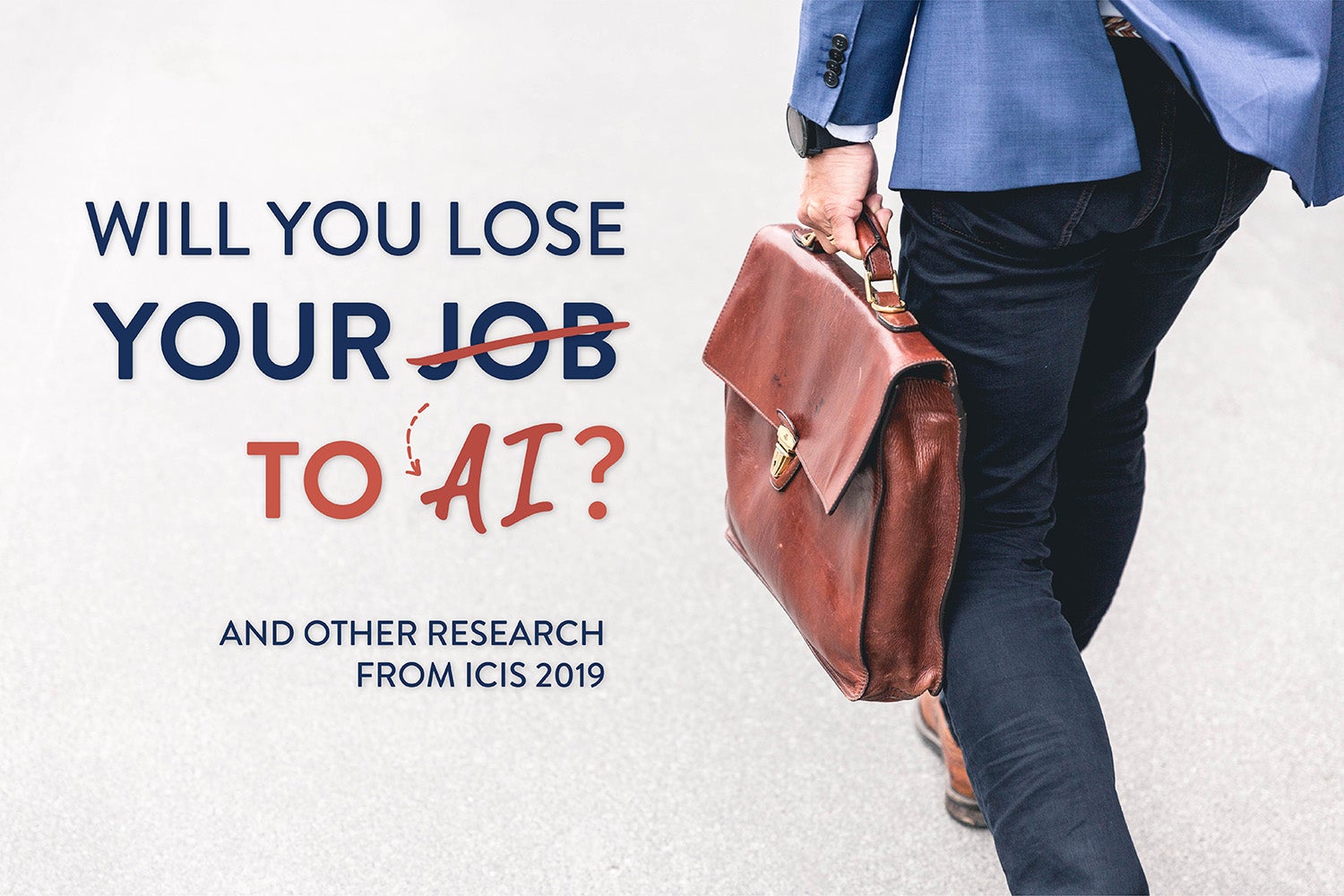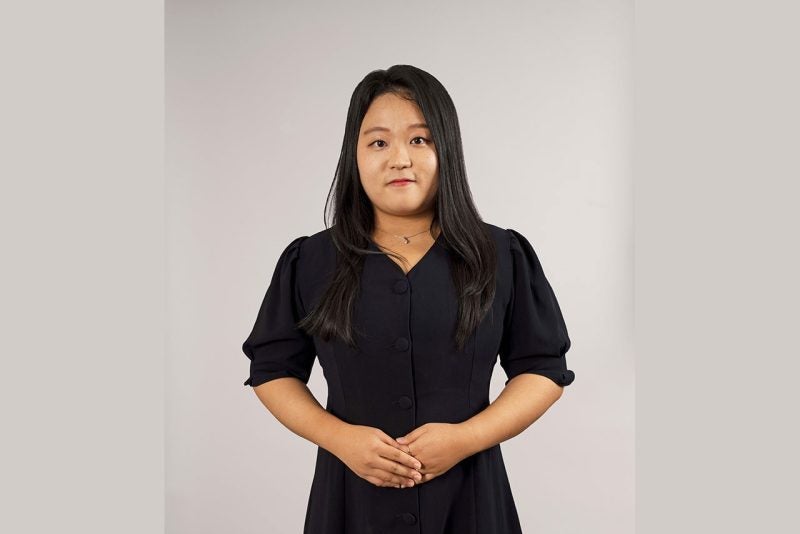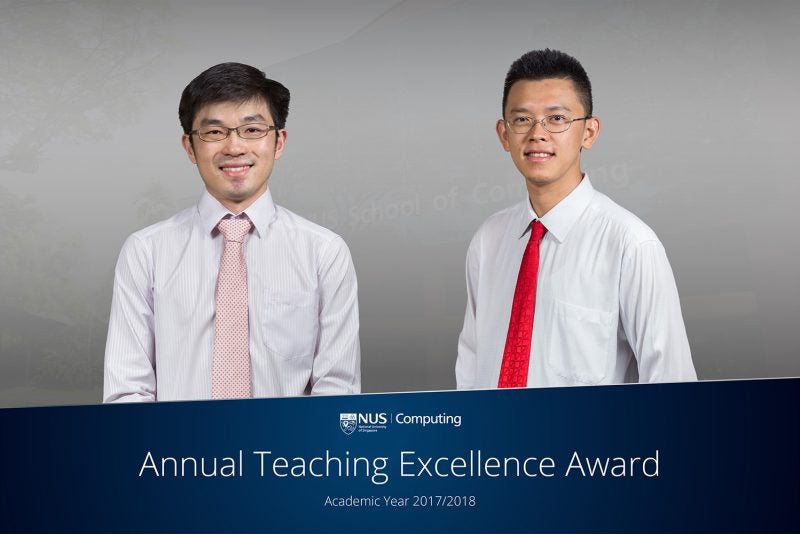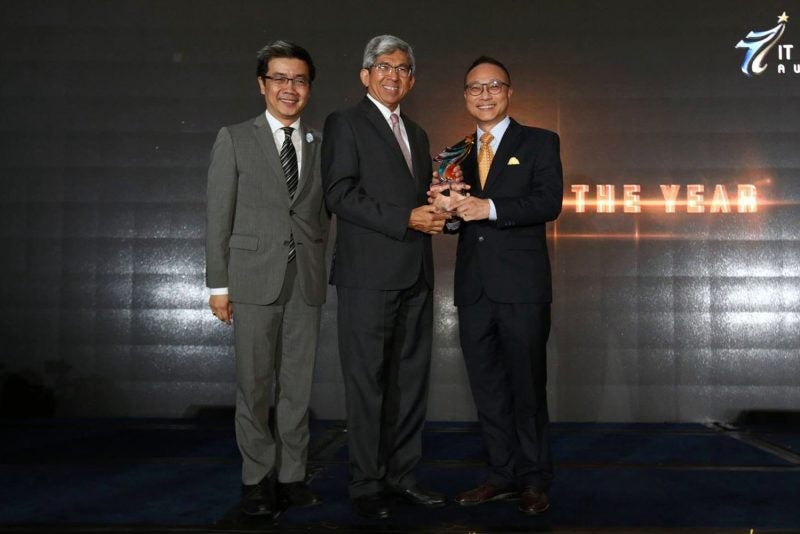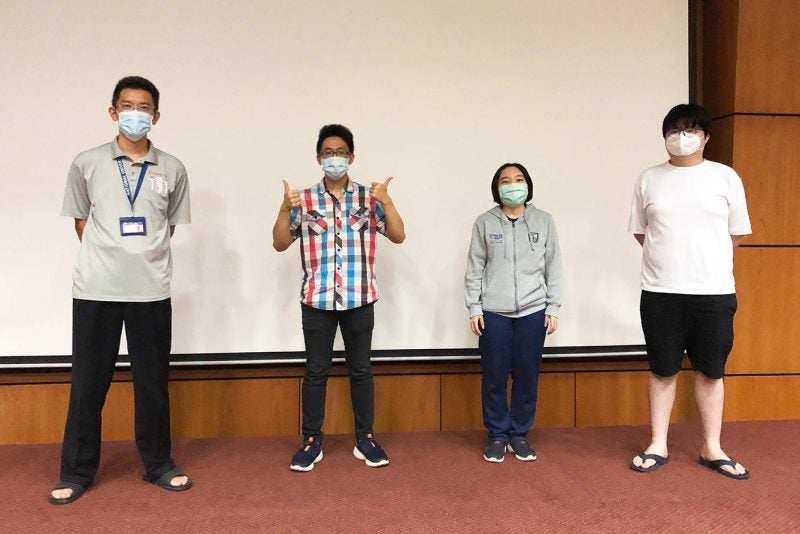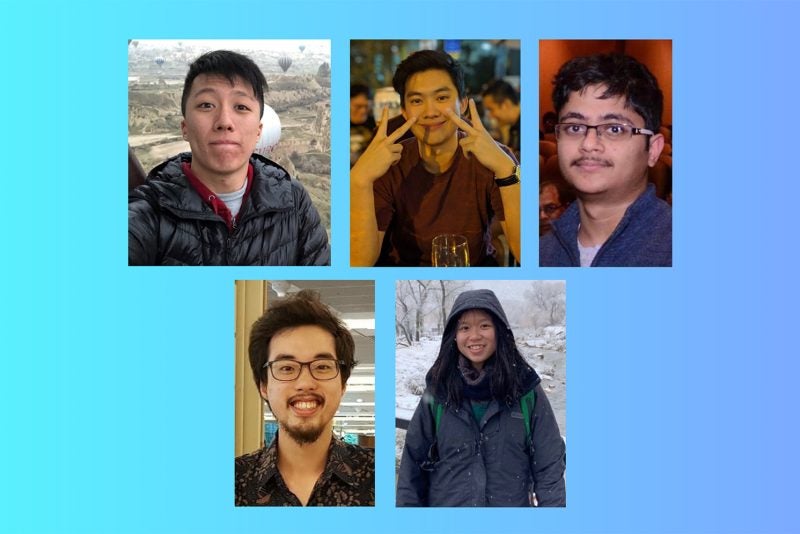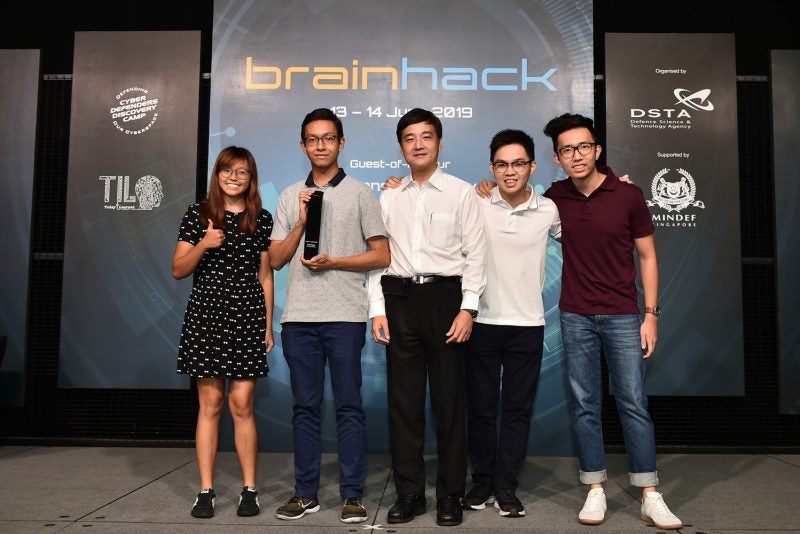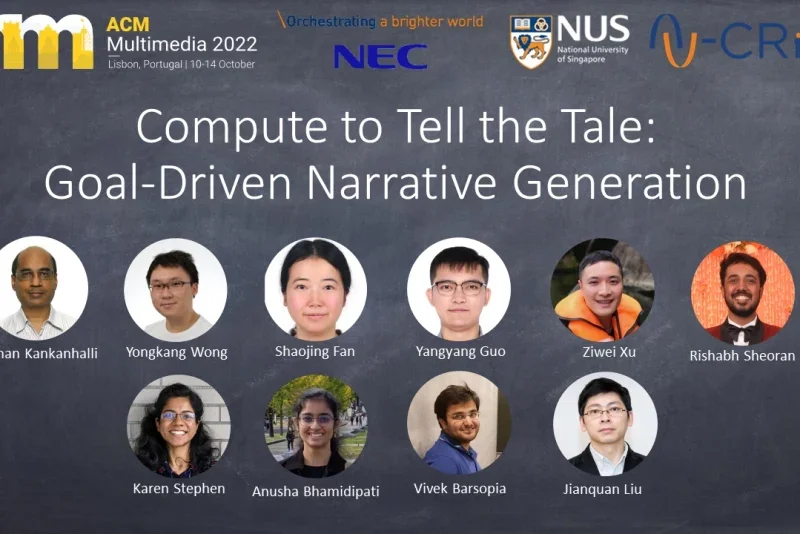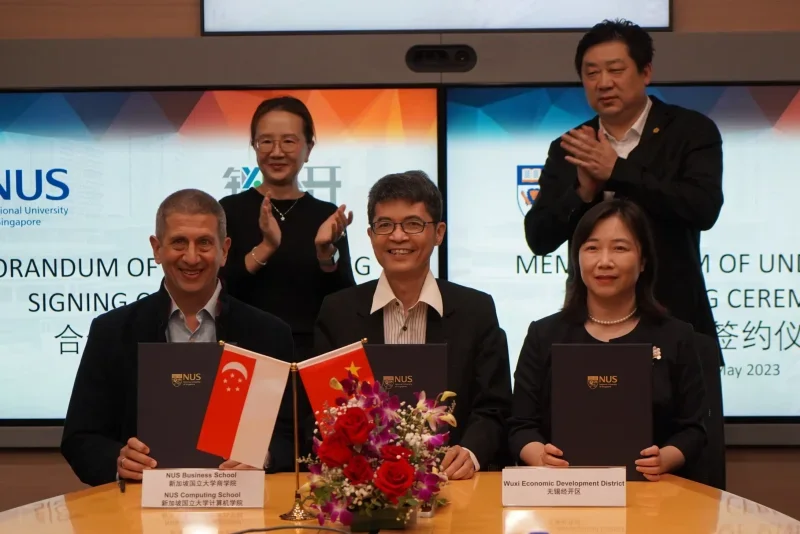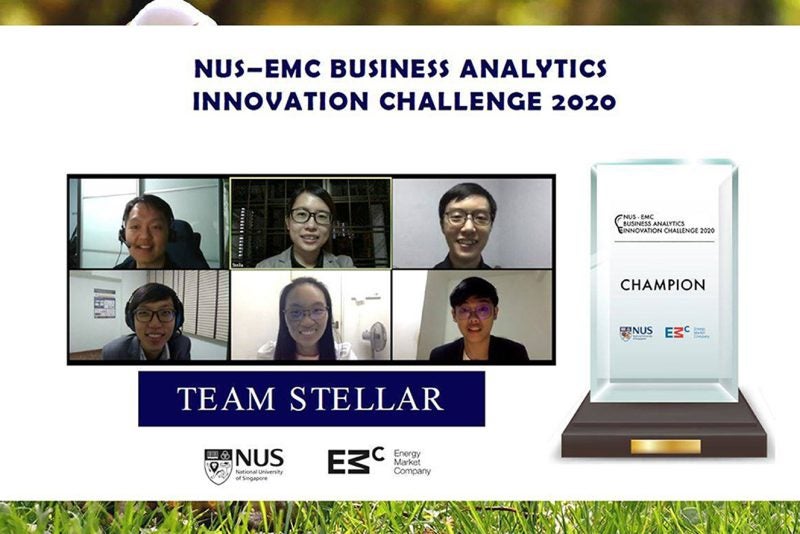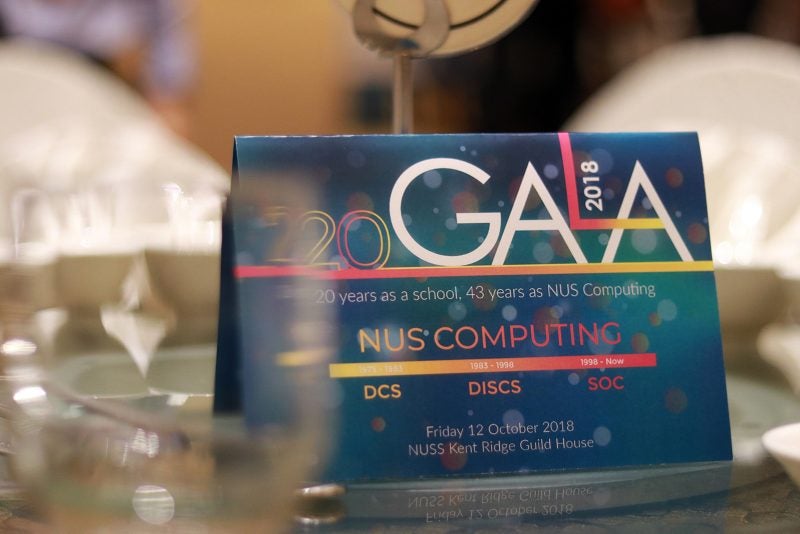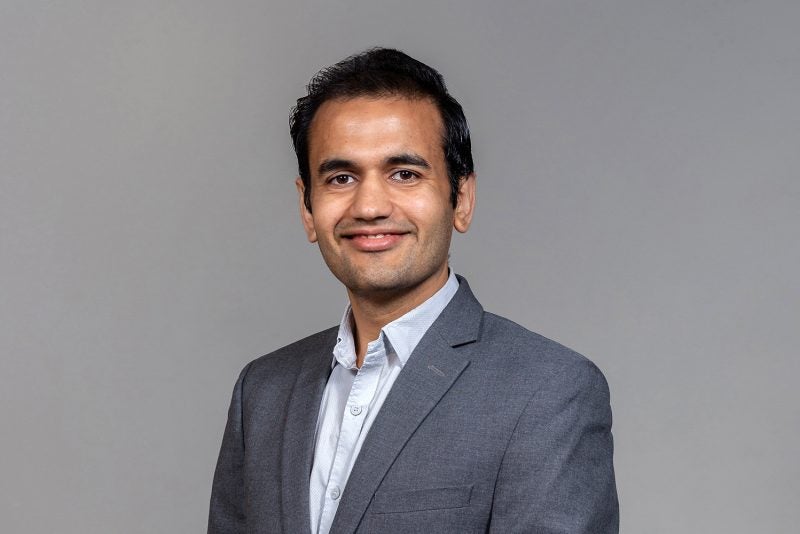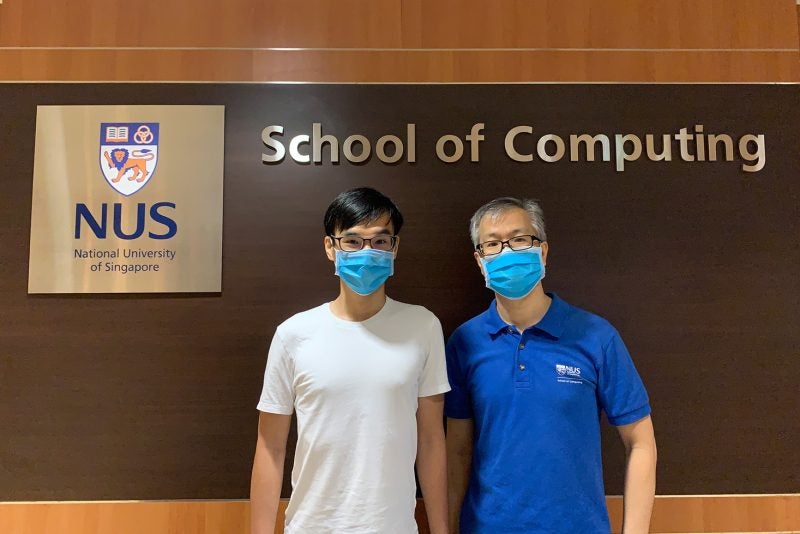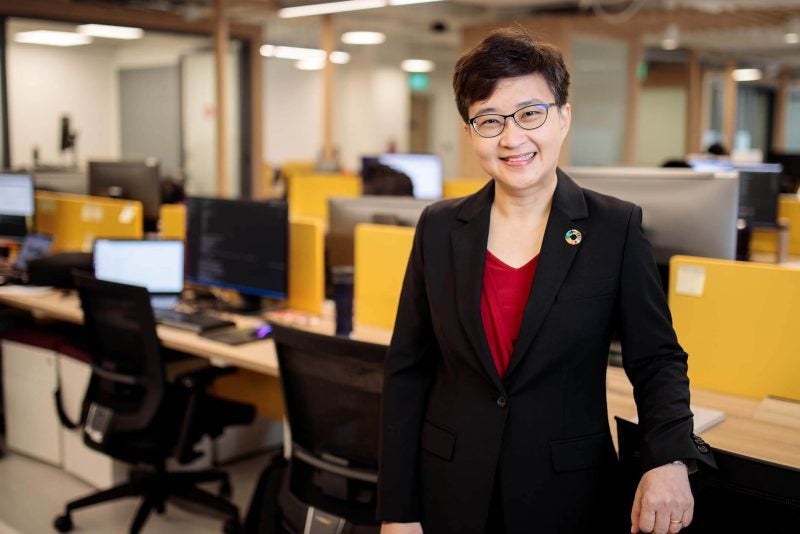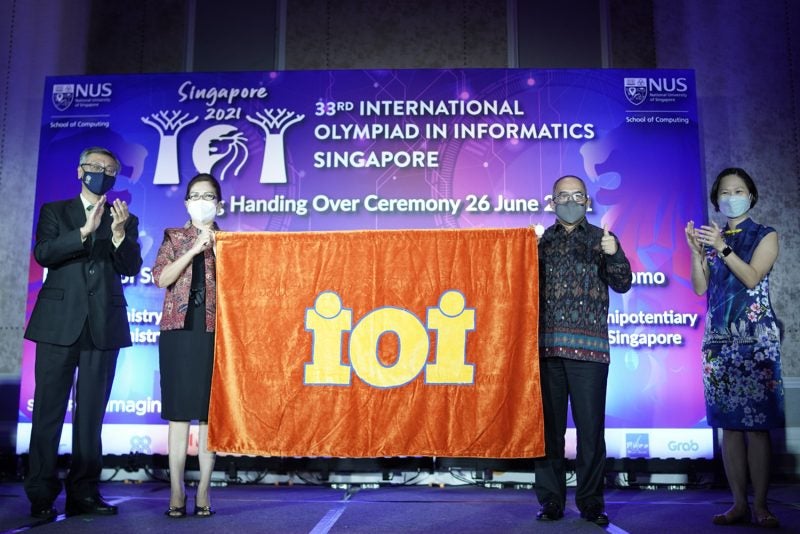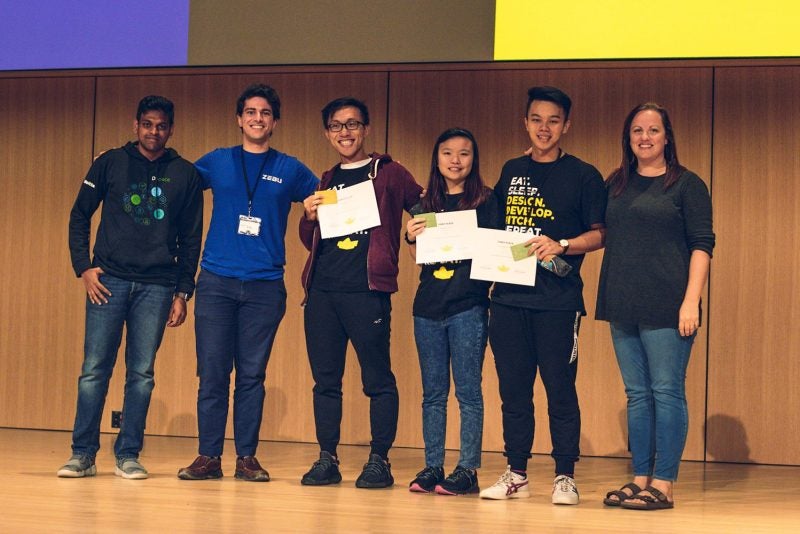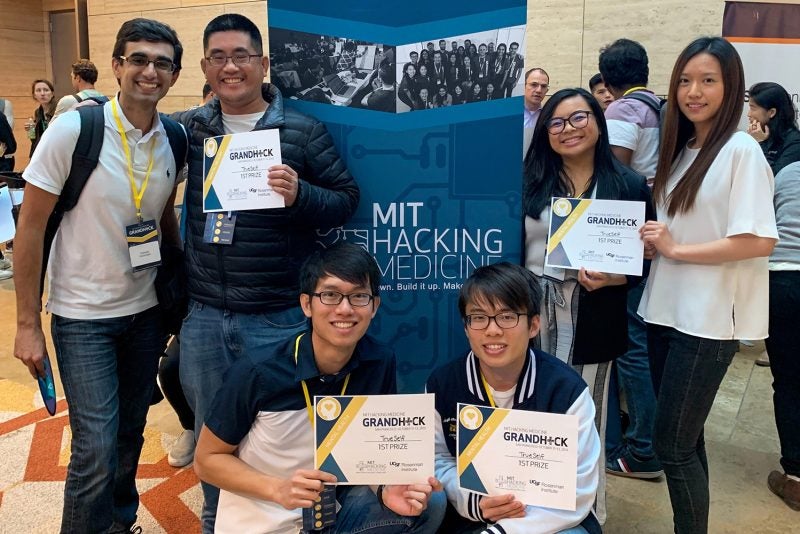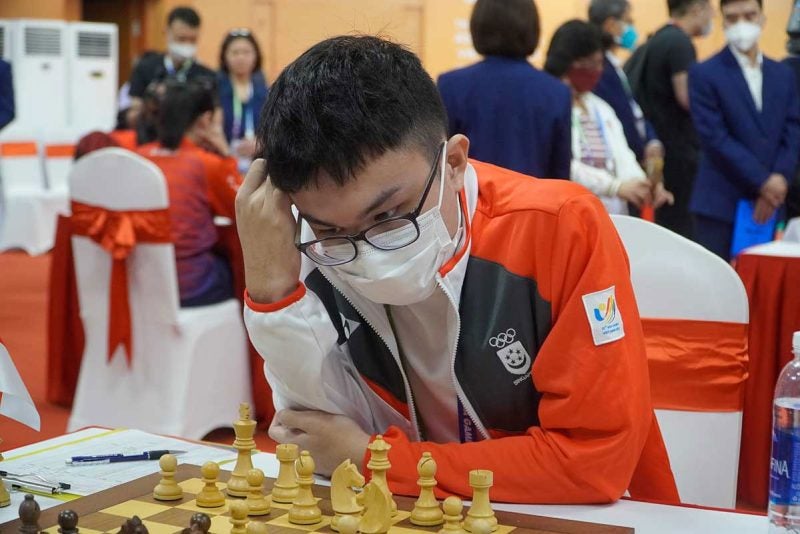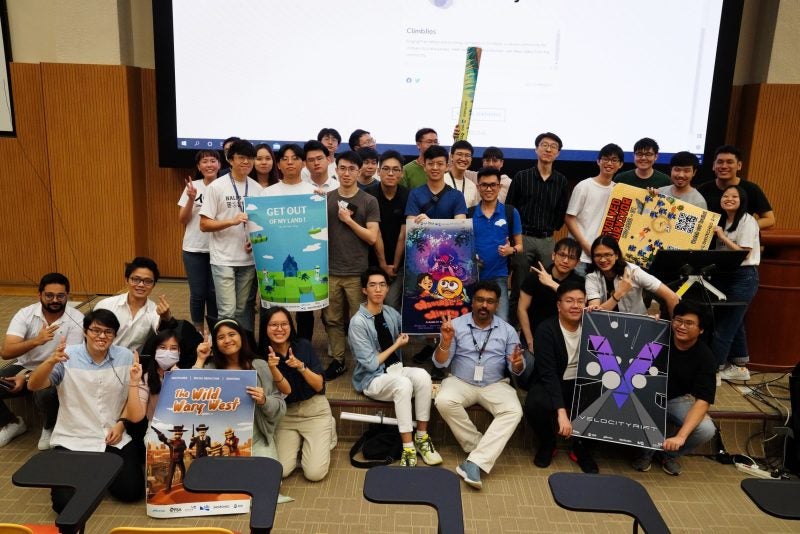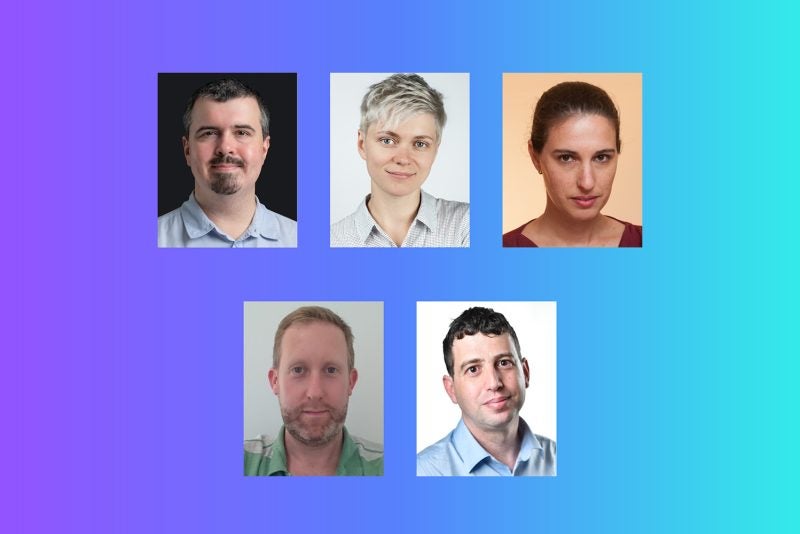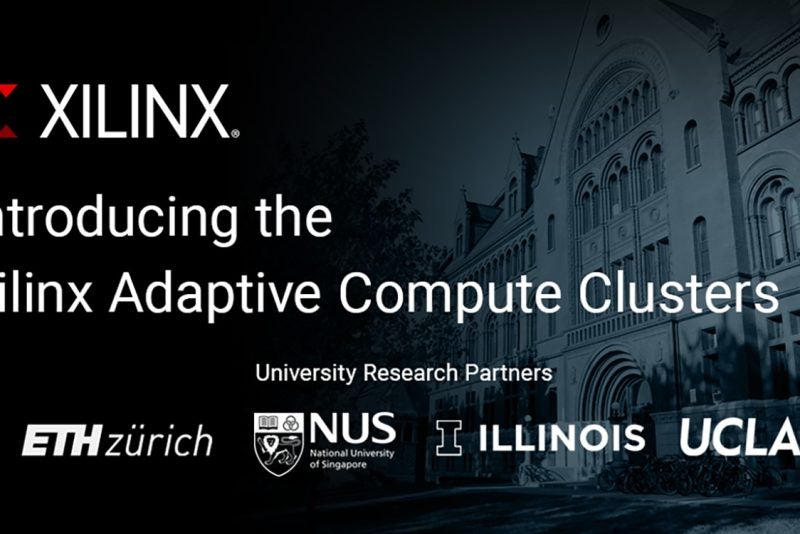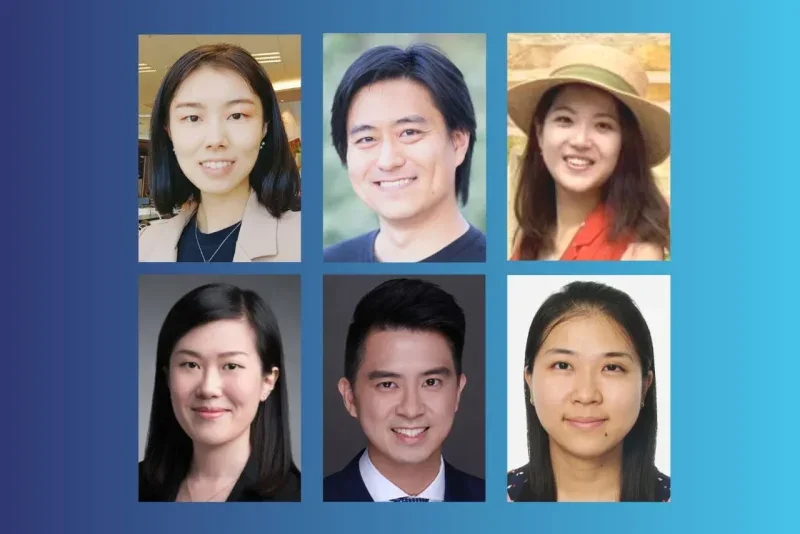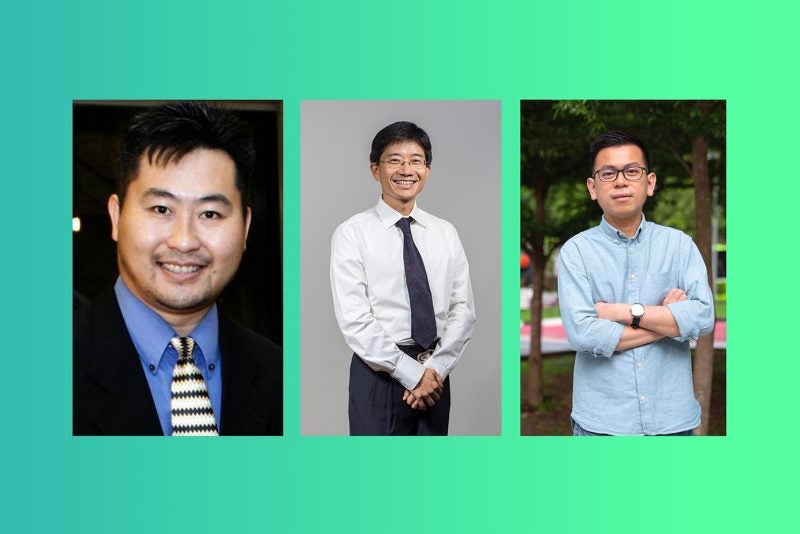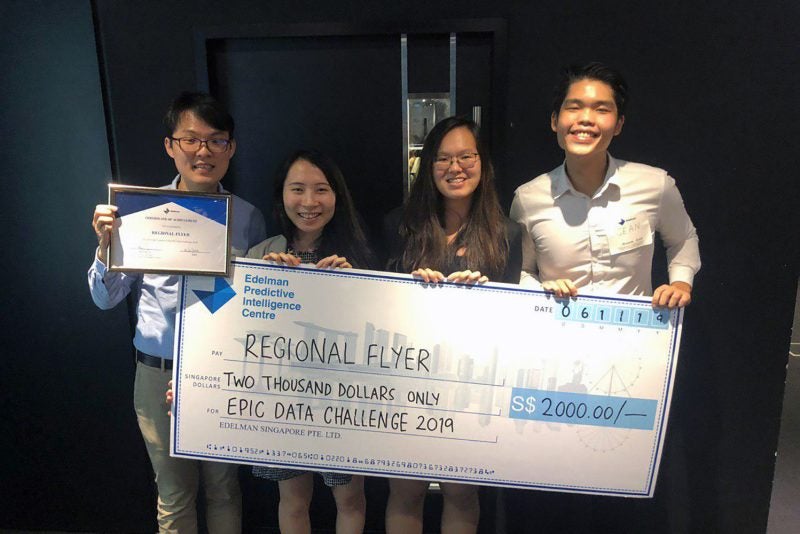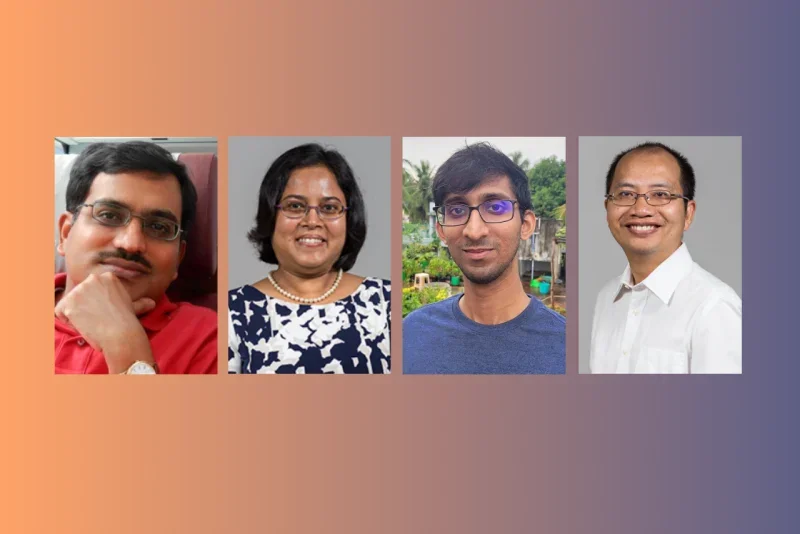From investigating the probability of losing jobs to artificial intelligence (AI), to the benefits of pop-up ads—here are the recent research breakthroughs by the Department of Information Systems and Analytics, presented at the International Conference on Information Systems (ICIS) 2019.
Will you lose your job to AI?
With advancements in AI, there is a growing concern that jobs will be displaced by automation. Associate Professor Huang Ke-Wei, along with PhD students Wang Qi and Liu Xuanqi, investigated the probability of AI displacing or augmenting jobs in the next decade.
Jobs with only supplemental work activities being automated are likely to be augmented (i.e., enhanced) by AI, whereas those with core work activities being automated may be displaced.
Using a machine learning-based method to analyse data from the Occupational Information Network (O*NET), a publicly available dataset by the United States (U.S.) Department of Labor, they computed the AI automation scores of core and supplemental work activities.
In addition, they analysed data from millions of U.S. workers’ LinkedIn resumes in order to identify key characteristics (e.g., education background, prior work experience) that may determine whether each individual person will be displaced or augmented by advances in AI.
By combining data from both O*NET and LinkedIn, they found that social, artistic, and IT skills accumulated from prior work experience can lower a person’s risk of losing their job to AI advances. Professionals with a master’s or PhD degree, as well as those who majored in the fields of science, computing, law, and medicine are also more likely to benefit from AI advancements.
The golden hour for Alzheimer’s detection
Alzheimer’s Disease (AD), the sixth leading cause of death in the U.S., is estimated to afflict more than 80 million people around the world by 2050. Early detection of AD will not only improve the quality of life for patients, but also potentially reduce the burden placed on public healthcare systems.
The transitional stage of AD, Mild Cognitive Impairment (MCI), is considered a ‘golden stage’ for early therapeutic treatment. However, it is difficult to distinguish MCI from the normal cognitive decline of aging.
Professor Bernard Tan and Assistant Professor Vaibhav Rajan, along with PhD student Qiu Lin, developed a new deep multimodal model that can harness different types of data to accurately predict a patient’s risk for MCI.
The model, Modality-Invariant and Modality-Specific Learning (MIMSL), combines three clinical measurements to predict MCI risk: images from Magnetic Resonance Imaging (MRI), genotypes from genetic markers indicating risk of developing AD, and text from patient records. This is unlike most previous research that studied these measurements individually.
The neural architecture of their model can be viewed as a combination of interconnected autoencoders that are trained together, where each type of data (i.e., images, genes, and text) is a different modality.
The interconnections enable the bottleneck layers to learn both modality-specific and modality-invariant representations: MIMSL learns modality-specific representations from each modality and a shared patient representation from all the input modalities at the same time. The shared representations show the true MCI status of a patient.
When tested using data from the Alzheimer’s Disease Neuroimaging Initiative (ADNI), they found that MIMSL outperformed state-of-the-art multimodal models for MCI prediction. ADNI is a longitudinal study designed to collect clinical, imaging, genetic, and biochemical biomarkers for tracking Alzheimer’s disease.
In addition, MIMSL does not require complex, time-consuming feature engineering, unlike previous models for MCI prediction. Therefore, the model can easily be integrated into existing Clinical Decision Support Systems in hospitals for accurate early diagnosis of Alzheimer’s Disease.
The X factor of online ads
Here’s a scenario familiar to most people that shop online: you enter the website, ready to buy something, but before you can, a dreaded pop-up ad that covers the entire screen appears.
Annoying, isn’t it? Especially when you are unable to find the close button.
However, research from Professor Teo Hock Hai and PhD student Peng Xixian suggests that pop-up ads are not all that bad, actually.
Collaborating with Dr. Wang Xinwei from the University of Auckland, their paper proposes that ‘interrupting’ website features like pop-up ads can potentially benefit consumers by alleviating the choice overload effect.
The choice overload effect refers to the situation where consumers face greater choice difficulty and dissatisfaction as the product assortment (i.e., the variety of products offered for sale) increases. Due to the presence of many alternative options, it is hard for consumers to make a decision as they may feel uncertain about what they should choose. This also causes them to feel less confident about any choice eventually made.
When consumers face a product choice decision, they make evaluations by finding available information about the various options. Most of the time, the information is new and unless an interruption occurs, consumers will/tend to adopt the default bottom-up, data-driven processing mode to analyse the data.
In the study, participants were tasked to order one pizza from either a small or large assortment online. The researchers observed that the participants who were not interrupted by a filler task experienced greater choice difficulty.
The results showed that after an interruption, people tend to rely less on bottom-up processing—shifting to a top-down, goal-driven processing mode instead, as the information is no longer new.
In this case, the goal of selecting a pizza from different options is to eat. After an interruption, the participants are likely to focus more on their preexisting goal of choosing something to eat, instead of analysing the information (such as the ingredients in each pizza) in detail.
The study also found that the effect of a larger assortment size in increasing the experience of choice difficulty disappears when there is an interruption during the decision-making process; instead, an interruption can significantly reduce choice difficulty.
———————-
ICIS 2019 was held from December 15–18 in Munich, Germany. The Department of Information Systems and Analytics presented the following papers:
Displaced or Augmented? How does Artificial Intelligence Affect Our Jobs: Evidence from LinkedIn
Qi Wang (National University of Singapore); Ke-Wei Huang (National University of Singapore)
Battling Alzheimer’s Disease through Early Detection: A Deep Multimodal Learning Approach
Lin Qiu (National University of Singapore); Vaibhav Rajan (National University of Singapore); Bernard Tan (National University of Singapore)
Interruptions are not all Bad!: The Case of Choice Overload
Xixian Peng (Zhejiang University and National University of Singapore); Xinwei Wang (University of Auckland); Hock Hai Teo (National University of Singapore)
Play Broadens Thought-Action Repertoires: Effects of Gaming Task Labelling on Meaningful Engagement
Oteng Ntsweng (National University of Singapore); Sharon Tan (National University of Singapore)
Theory-Driven Integrated Formative Feedback Design for Online Adult Learners
Chenxu Zheng (National University of Singapore); Bernard Tan (National University of Singapore)
What’s on Your Mind? Promoting Cognitive Engagement Using Utterance Annotations in Online Collaborative Learning
Benedict The (National University of Singapore); Lu Yang (National University of Singapore); Qiyun Wang (National Institute of Education)
Effects of Expert- and User-Generated Evaluations on Food Product Choices via a Food Literacy App
Jieun Shin (National University of Singapore); Hyelim Oh (National University of Singapore); Atreyi Kankanhalli (National University of Singapore)
Artificial Intelligence Meets IS Researchers: Can It Replace Us?
Claudia Loebbecke (University of Cologne); Omar El Sawy (University of Southern California); Atreyi Kankanhalli (National University of Singapore); M. Lynne Markus (Bentley University); Dov Te’eni (Tel-Aviv University); Stefan Wrobel (Fraunhofer Institute for Intelligent Analysis and Information Systems)
The Dynamic Impacts of Online Healthcare Community on Physician Altruism: A Hidden Markov Model
Kai Luo (National University of Singapore); Qiu-Hong Wang (Singapore Management University); Hock Hai Teo (National University of Singapore)
Examining the Theoretical Mechanisms Underlying Health Information Exchange Impact on Healthcare Outcomes: A Physician Agency Perspective
Fang Zhou (National University of Singapore); Qiu-Hong Wang (Singapore Management University); Hock Hai Teo (National University of Singapore)
Display ‘Why’ Higher than ‘How’: How Display Positioning Affects Construal Level
Xixian Peng (National University of Singapore); Xinwei Wang (University of Auckland); Dezhi Wu (University of South Carilona); Hock Hai Teo (National University of Singapore)
Look and Feel: The Importance of Sensory Feedback in Virtual Product Experience
Cheng Luo (Tianjin University); Yi Shen (Soochow University); Yang Liu (National University of Singapore); Zhenhui Jack Jiang (National University of Singapore)
Application of Deep User Activity Transfer Models for Cross Domain User Matching
Sapumal Ahangama (National University of Singapore); Danny Chiang Choon Poo (National University of Singapore)
Selling Information When Attention is Limited: An Empirical Analysis of an Online Investment Advisory Platform
Ding Li (National University of Singapore); Nan Chen (National University of Singapore); Khim Yong Goh (National University of Singapore)
Mobile Live Streaming: The Roles of Broadcasters’ Screen Presence and Dynamic Emotions in Viewership Engagement
Yutong Guo (National University of Singapore); Khim Yong Goh (National University of Singapore); Mona Ragab Sayed (National University of Singapore)
Online Advertising in Online-to-Offline Retailing Environments: The Moderating Effects of Salesforce and Product Lines
Yunkun Zhao (National University of Singapore); Liwen Hou (Shanghai Jiaotong University); Khim Yong Goh (National University of Sing
Resilience of Technology-Mediated Healthcare Ecosystems: A Relational Coordination Perspective
Iman Taani (National University of Singapore); Isam Faik (National University of Singapore)
Trust Building on Charitable Crowdfunding Platforms: The Case of Qfund
Dawei Chen (National University of Singapore); Xuanqi Liu (National University of Singapore); Isam Faik (National University of Singapore)
Deep Recurrent Neural Networks for Mortality Prediction in Intensive Care using Clinical Time Series at Multiple Resolutions
Suparna Ghanvatkar (National University of Singapore); Vaibhav Rajan (National University of Singapore)
Transfer Learning in Dynamic Business Environment: An Application in Earnings Forecast for Public Firms
Jiaxu Peng (National University of Singapore); Jungpil Hahn (National University of Singapore)

